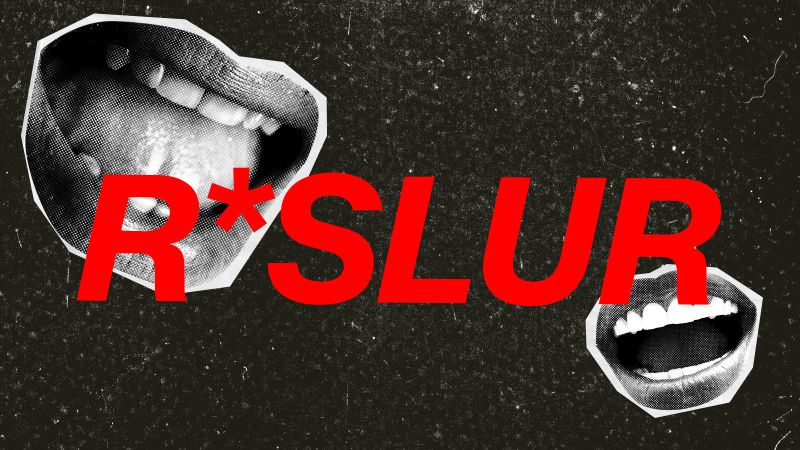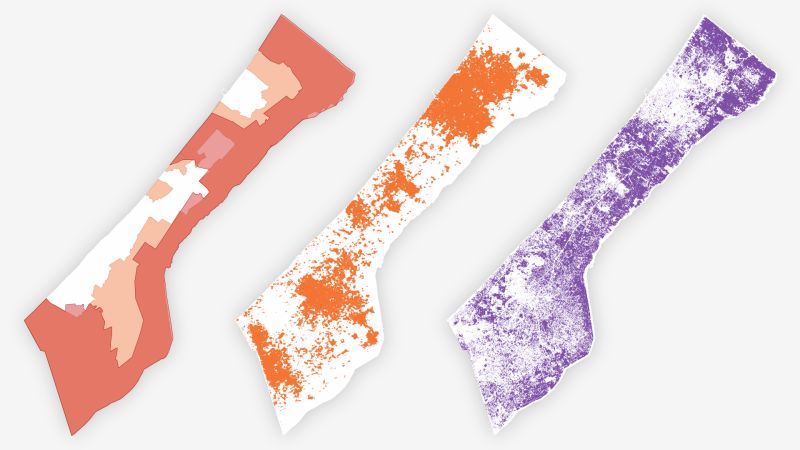The R-Word: A Case Study In The Renormalization Of Offensive Language

Welcome to your ultimate source for breaking news, trending updates, and in-depth stories from around the world. Whether it's politics, technology, entertainment, sports, or lifestyle, we bring you real-time updates that keep you informed and ahead of the curve.
Our team works tirelessly to ensure you never miss a moment. From the latest developments in global events to the most talked-about topics on social media, our news platform is designed to deliver accurate and timely information, all in one place.
Stay in the know and join thousands of readers who trust us for reliable, up-to-date content. Explore our expertly curated articles and dive deeper into the stories that matter to you. Visit Best Website now and be part of the conversation. Don't miss out on the headlines that shape our world!
Table of Contents
The R-Word: A Case Study in the Renormalization of Offensive Language
The casual use of the "R-word," a derogatory term for people with intellectual disabilities, continues to be a significant societal problem. While progress has been made in raising awareness and promoting inclusive language, the insidious renormalization of this offensive term remains a persistent challenge. This article explores the complex issue of how offensive language, like the R-word, can seep back into everyday conversation, despite widespread efforts to eradicate it. We will delve into the psychology behind its use, the impact on the affected community, and potential strategies for continued progress.
The Lingering Legacy of Ableism:
The R-word isn't just a word; it's a symbol of a long history of ableism—discrimination and social prejudice against individuals with disabilities. For generations, this term has been used to demean and dehumanize people with intellectual disabilities, reinforcing harmful stereotypes and contributing to societal exclusion. Even with increased awareness campaigns and educational initiatives, the word's power to inflict emotional damage remains potent.
Why Does the R-Word Persist?
Several factors contribute to the persistence of the R-word:
- Lack of Awareness and Education: Many individuals are unaware of the deeply hurtful nature of the term, using it casually without understanding its impact. Comprehensive education, starting at a young age, is crucial.
- Normalization through Media and Pop Culture: The word can inadvertently reappear in media, sometimes used without malicious intent but still causing harm. This underscores the need for greater sensitivity and responsible content creation.
- The Power of Habit and Social Contagion: Once ingrained in social norms, offensive language can be difficult to eradicate. Even well-meaning individuals can unknowingly perpetuate its use through habit or social pressure.
- The Illusion of "Friendly" or "Casual" Usage: The argument that the R-word is used casually or amongst friends often fails to recognize the inherent disrespect and harm caused.
The Psychological Impact:
The use of the R-word, even in seemingly innocuous contexts, can have a devastating impact on individuals with intellectual disabilities and their families. It can:
- Reinforce Negative Stereotypes: Perpetuating harmful images that undermine self-esteem and confidence.
- Fuel Social Isolation: Creating barriers to inclusion and participation in mainstream society.
- Trigger Emotional Distress: Causing feelings of shame, anger, and hurt.
Moving Forward: Strategies for Change:
Combating the renormalization of the R-word requires a multi-pronged approach:
- Increased Public Awareness Campaigns: These campaigns should target all age groups and emphasize the emotional impact of using this term.
- Mandatory Inclusive Language Training: Educational institutions, workplaces, and community organizations should incorporate training on respectful language.
- Media Responsibility: Media outlets must be held accountable for responsible language use and avoid perpetuating harmful stereotypes.
- Empowering Individuals with Disabilities: Centering the voices and experiences of those directly impacted is crucial for shaping effective strategies.
- Promoting Person-First Language: Actively using person-first language (e.g., "person with intellectual disability") instead of identity-first language is crucial.
Conclusion:
The fight against the renormalization of the R-word is an ongoing battle. While significant progress has been made, continued vigilance, education, and proactive strategies are essential to create a truly inclusive society where the dignity and respect of all individuals are valued and protected. Let's all commit to using respectful and person-first language to build a more equitable and compassionate world. Learn more about inclusive language and disability rights by visiting organizations like [insert relevant organization link here].

Thank you for visiting our website, your trusted source for the latest updates and in-depth coverage on The R-Word: A Case Study In The Renormalization Of Offensive Language. We're committed to keeping you informed with timely and accurate information to meet your curiosity and needs.
If you have any questions, suggestions, or feedback, we'd love to hear from you. Your insights are valuable to us and help us improve to serve you better. Feel free to reach out through our contact page.
Don't forget to bookmark our website and check back regularly for the latest headlines and trending topics. See you next time, and thank you for being part of our growing community!
Featured Posts
-
 Against All Odds Half Marathon Walk For Uptown Woman Recovering From Running Injury
Jun 02, 2025
Against All Odds Half Marathon Walk For Uptown Woman Recovering From Running Injury
Jun 02, 2025 -
 Gun Violence Rocks Hickory Nc One Fatality Eleven Injuries Reported In Shooting
Jun 02, 2025
Gun Violence Rocks Hickory Nc One Fatality Eleven Injuries Reported In Shooting
Jun 02, 2025 -
 Thomas Tuchels Spanish Grand Prix Trip With The England National Team
Jun 02, 2025
Thomas Tuchels Spanish Grand Prix Trip With The England National Team
Jun 02, 2025 -
 Against All Odds Half Marathon Walk For Uptown Woman Who Was Told She D Never Run Again
Jun 02, 2025
Against All Odds Half Marathon Walk For Uptown Woman Who Was Told She D Never Run Again
Jun 02, 2025 -
 Constrained Existence Five Maps Detailing The Shrinking Living Area In Gaza
Jun 02, 2025
Constrained Existence Five Maps Detailing The Shrinking Living Area In Gaza
Jun 02, 2025
Latest Posts
-
 Russia Launches Massive Air Strikes On Ukraine Poland Deploys Fighter Jets
Sep 22, 2025
Russia Launches Massive Air Strikes On Ukraine Poland Deploys Fighter Jets
Sep 22, 2025 -
 British Couples Son Freed By Taliban Joyful Reunion In Uk
Sep 22, 2025
British Couples Son Freed By Taliban Joyful Reunion In Uk
Sep 22, 2025 -
 Dealing With Loose Skin A Common Side Effect Of Weight Loss Drugs
Sep 22, 2025
Dealing With Loose Skin A Common Side Effect Of Weight Loss Drugs
Sep 22, 2025 -
 Car And Van Crash On A9 At Slochd Claims Two Lives Couple Named
Sep 22, 2025
Car And Van Crash On A9 At Slochd Claims Two Lives Couple Named
Sep 22, 2025 -
 London Fashion Week Romeo Beckhams Runway Walk And Dame Prues Show Stopping Outfit
Sep 22, 2025
London Fashion Week Romeo Beckhams Runway Walk And Dame Prues Show Stopping Outfit
Sep 22, 2025
